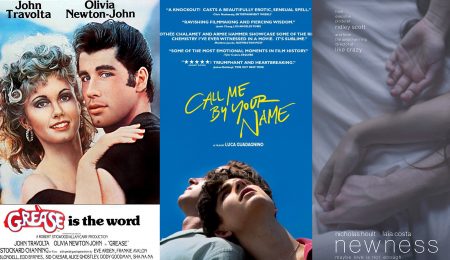“Blurred Lines” lawsuit could discourage artists from seeking out inspiration
Remember “Blurred Lines”? The 2013 pop hit stirred up a fair amount of controversy, (read: misogynist drivel) and actually got sued successfully for millions of dollars.
The suit came from the estate of Marvin Gaye against Robin Thicke and Pharell Williams, which claimed that “Blurred Lines” had copied the “vibe” of Marvin Gaye’s “Got to Give it Up”, leading a judge to award the estate $7.4 million in damages, later reduced to $5.3 million.
Now, as much pleasure as this decision may have given anyone who’s ever heard of Robin Thicke, it happens to have some potentially devastating consequences for aspiring artists everywhere.
Right now, Thicke and Williams are appealing the suit, and as of Aug. 30 over 200 musicians have noted their support—including Earth, Wind & Fire, Tears for Fears, Linkin Park, and composer Hans Zimmer.
According to a brief signed by the artists, they’ve done so because the ruling could have a negative impact on “their own creativity, on the creativity of future artists, and on the music industry in general.”
So, is it OK to borrow from another artist’s vibes, especially if the end result turns into a monster hit?
The first thing to bear in mind is that most music—pop music especially—can hardly be called original. That’s not necessarily a bad thing, after all, not all chords sound good together.
The exact same chord progression can be heard in the background of thousands of songs from “Let it Be” to “No Woman, No Cry” to “Let it Go” from Frozen. A drum pattern known as the “Amen Break” was found to be sampled in 2,237 popular songs.
So, at a base level, there is already an inherent amount of “copying” going on in elements of modern music.
Now, copyright law is very important in the right situations. It’s designed to protect artists from having their work stolen, so they can keep credit for themselves. It also to protects their profits from other people passing off their work as their own.
In these categories, this case should not have been ruled a copyright infringement. I don’t think Marvin Gaye’s creative legacy needs credit for a Robin Thicke pop song, and it’s hard to imagine many music fans are opting to support crappy modern pop music as opposed to a Motown legend like Marvin Gaye.
The real problem comes when the lines get blurred, so to speak, and copyright law starts to move beyond flagrant duplication—lyrics, a long series of musical notes, etc.—and into more subjective areas like “vibes”.
The problem lies in the fact that taking a “vibe” from another artist is very similar to taking inspiration from them. If an artist fears that being influenced by great music will get them sued, they won’t even bother, which means that a lot of great music won’t see the light of day.
But what about originality? Well, originality doesn’t mean doing everything yourself, and this is true no matter what the discipline. After pioneering modern physics, Albert Einstein admitted that he had been able to “stand on the shoulders of giants” like physicists Isaac Newton and James Clerk Maxwell.
If this verdict is allowed to stand, it will set a bad precedent for tighter controls on musical style, and create an environment where artists are putting themselves at risk of losing millions by learning from the masters of their craft.
So when you’re considering this case, don’t get blinded by the song that’s at the centre of the lawsuit. Instead, think about 200 prominent musicians, and the pain they must be feeling having to champion artistic creativity by rallying around Robin Thicke.





